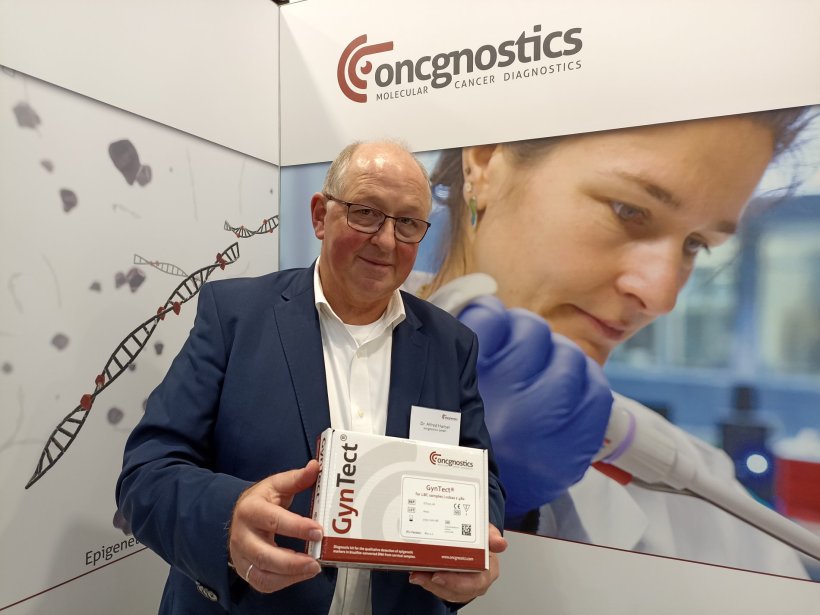
© Sonja Buske
Article • Cervix, vulva and vagina
More certainty with methylation tests for early detection of cancer
A second-generation lab test for early detection of cervical cancer is the most recent addition to Oncgnostics’ portfolio. In particular, the company’s solution will help women in countries with limited cancer screening. Moreover, new research on the early detection of vulval and vaginal cancer might soon enable the development of tests for these cancers.
Report: Sonja Buske
In 2015, Oncgnostics, a then three-year-old University of Jena spin-off, launched GynTect, a test for the early detection of cervical cancer. It uses DNA methylation as a biomarker that occurs specifically in cervical cancer or its precursors. At that time, GynTect was one of the first solutions worldwide to apply this technology to the early detection of cancer. Today, the test is marketed in several European countries and in August 2022, it was approved in China.
Most new cancers occur in countries with little screening. There, our tests could be a useful tool
Alfred Hansel
Since GynTect detects six methylated DNA regions, a maximum of ten samples can be processed at a time which makes GynTect more resource-intensive than conventional lab tests. Consequently, the test is less suitable for use in countries with little or no screening and limited lab equipment. Thus, Oncgnostics developed a second generation of the test which was presented at last year’s Medica: ScreenYu Gyn. As it detects only one methylated DNA region it can be more easily automatized and up to 100 samples can be analysed in one batch. It was approved in May 2022 but is not being used yet. ‘Currently, we make the test available only to interested researchers,’ says Dr Alfred Hansel, co-founder and CEO of Oncgnostics, and adds ‘while we did our own study with 600 samples, we want to have the test verified by an independent third party.’ ScreenYu Gyn does not yet reach its predecessor’s accuracy; nevertheless, it is an alternative for developing countries and rural and remote areas. Dr Hansel points out that ‘most new cancers occur in countries with little screening. There, our tests could be a useful tool.’
Self-pay service
In Germany, the tests are currently a self-pay service, i.e., the costs of the tests are not covered by statutory health insurers but have to be paid by the women themselves. Particularly women with a suspicious pap smear or a positive HPV test are interested in the Oncgnostics test to get an unambiguous result before the gynaecologist repeats the test three to twelve months later. ‘A suspicious test result does not necessarily mean cancer,’ Dr Hansel explains and adds that ‘abnormal tissue and HPV infections usually heal by themselves; therefore, physicians tend to wait and recheck after a certain period of time. For many women, this time of uncertainty means enormous mental stress, so they use our test to clarify the initial finding. GynTect not only reliably detects existing tumours; it can also provide information on the probability of cervical cancer.’
Early detection of vulval and vaginal cancer
To date, there is no test for the early detection of vulval and vaginal cancer. Due to the unspecific symptoms, it is usually an incidental finding. A methylation test using the same biomarkers as the cervical cancer test might be a solution, as Hansel and his team found in initial studies with a few hundred samples from two university hospitals. ‘Currently, our test recognizes 80 to 90 percent of all cancers, and we fully expect to reach 100 percent soon,’ the CEO says. In two years at most, he estimates, that goal will be reached since he and his team are focusing their full efforts on the project. If the health insurers start to pay for the test, the development might even be faster than with the previous two tests since there are no alternatives.
01.03.2023





